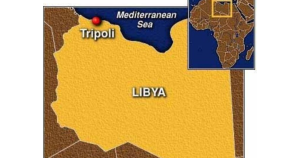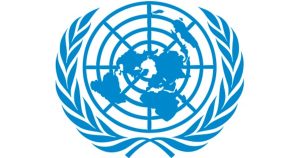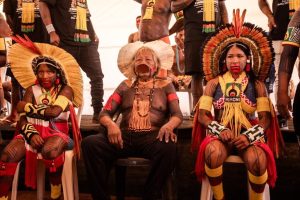On 7 July 2012, jubilant crowds in Tripoli’s streets marked Libya’s first national parliamentary polls in more than forty years. Some 3,700 candidates competed for 200 seats in the General National Congress (GNC). While the final results are not yet known, and polling was disrupted by violence in several areas, observers widely hailed the elections—held less than one year after the revolution brought Muammar Gaddafi’s decades-long dictatorship to an end—as a remarkable achievement.
The elections are no doubt an important step along Libya’s transition to democracy. But the elections have also raised hopes for improving the country’s security situation. Rising tensions in recent weeks have been blamed by some observers, in part, on the interim government’s inability to control armed brigades seeking to assert themselves politically and to settle scores. A new central government with a popular mandate could improve the situation. Pulling in the brigades, however, will also be necessary if the new government—to be appointed by the GNC—will be increasingly able to implement a transitional justice agenda.
Only patchwork progress has been made toward securing accountability for crimes committed during the Gaddafi era and the revolutionary period. Trial of the head of Gaddafi’s external security organization, Abu Zaid Omar Dorda—the first case against a senior Gaddafi-era official to come to trial—has been postponed for a third time to permit more time for defence preparations. While a transitional justice law providing for both a fact-finding and reconciliation commission and a victims compensation fund was enacted by the interim National Transitional Council (NTC), it has gone unimplemented. It remains unclear whether this law will be retained or repealed when the new government takes power.
The same goes for two amnesty provisions passed by the interim government. One provides an amnesty for certain crimes (while excluding others, including torture and rape) committed before the passage of the law, while the other provides amnesties for all “military, security or civil actions required by the 17th of February revolution undertaken by the revolutionaries to ensure the success or protection of the revolution.” The latter is perhaps particularly troubling given the extent of human rights violations that are still taking place in Libya, including, as discussed below, torture in militia-run detention facilities. To the extent these amnesty laws are applied to crimes under international law—including torture, enforced disappearance, crimes against humanity, and war crimes—they will violate Libya’s international obligations.
Limited progress is unsurprising. The 17 February revolution was sown in the desire for justice—particularly for hallmark crimes of the Gaddafi-era like that at Abu Salim prison in 1996 in which 1200 prisoners were massacred and their bodies hidden. But a full agenda of transitional justice, combining criminal prosecutions with truth-seeking and reparative measures, will take time to conceive, put in place and carry out.
Some of the more immediate challenges within this hinge directly on what happens next with the armed brigades. In March 2012, the United Nations estimated that between 5,000-6,000 so-called “conflict-related detainees” remained within the custody of armed brigades, while another 2,400 individuals are in state custody. The militias have no authority to detain under Libyan law and torture in militia-run facilities has been widely documented by Human Rights Watch, Amnesty International and others. According to Human Rights Watch, the detainee population is comprised of Gaddafi security force members, former Gaddafi government officials, suspected Gaddafi loyalists, suspected foreign mercenaries or migrants from sub-Saharan Africa. While some of these individuals are suspected of serious crimes, it is unclear how many detainees have had access to a judicial process to review their detention.
Saif al-Islam Gaddafi is among the most high-profile of those currently being detained. Although Saif al-Islam Gaddafi is held by the Zintan militia in western Libya, the Government claims his detention has been authorised by the Libyan Prosecutor General and is subject to judicial supervision. Saif al-Islam Gaddafi is wanted on an International Criminal Court (ICC) arrest warrant for crimes against humanity and ICC judges are currently reviewing Libya’s petition to take back the Saif al-Islam Gaddafi case in order to try him at home. If the Libyan authorities can prove they are able and willing to prosecute the case, the ICC may defer under what is known as its “complementarity” principle.
The Dorda case might have been a potential test of the Libyan system’s ability to mete out fair justice for serious crimes, but it will now start no earlier than 28 August 2012. But in an even greater setback to the efforts of the Libyans to try Saif al-Islam Gaddafi at home, the Zintan militia detained four ICC staff, including his court-appointed defence lawyer, on an official court visit. The detention violated the immunity to which the four are entitled via the United Nations Security Council referral that sent the case to the ICC. Their release was secured only after a month of negotiations between the Zintan militia, central Libyan authorities, the ICC and the international community, reflecting the weak position of the central authorities vis-à-vis the militia and raising serious questions as to whether Saif al-Islam Gaddafi will be able to secure an effective defence at home.
The Government has made efforts to end illegal detention. In early May, a law passed by the NTC gave the interior and defence ministries sixty days to refer to the judicial authorities detainees within militia custody against whom there is sufficient evidence of support to the former regime. Screening committees were established to review the status of each detainee. But according to Human Rights Watch, this law has had limited impact on the actual transfer of detainees, thus far. If the elections can provide militias with a greater stake or confidence in the national government it may also increase the chances that they will give up detainees, some of whom have served as bargaining chips in the primordial politics of this interim period.
If and when transfers take place, the Government will still face the daunting task of deciding whether or not to prosecute individuals; this will require a sound prosecutorial strategy to prioritise cases and secure the prompt release of individuals against whom there is insufficient evidence. Those in custody now may include some responsible for serious crimes committed over the course of the Gaddafi era, but to see that those most responsible for these crimes are held to account it will also be necessary to carry out a through mapping of crimes to plan for investigations and identify suspects, including those who may have fled abroad. It remains to be seen whether the newly-appointed government will, at long last, also put in place a strategy to act on allegations of serious human rights abuses by armed brigades.
Training provided by No Peace Without Justice to government authorities on the investigation and prosecution of serious crimes—beginning with a seminar for prosecutors held in May 2012—will help the Government put such strategies in place. The project will also help build civil society capacity on the documentation of human rights violations, which may help to consolidate existing sources of conflict and crime base mapping for the benefit of investigations and prosecutions. But ending illegal detention is a necessary first step.
At the same time, a focus on prosecutions should not exclude discussion of other transitional justice processes. Truth-telling, a functioning reparations scheme, and memorialisation, as well as efforts to enhance the role of victims in criminal justice proceedings, for example, could proceed in tandem with investigations and trials. At its inaugural meeting in April 2012, the informal steering committee of the NPWJ project in Libya decided to start planning for a national consultation on transitional justice. This consultation will permit Libyans to express their views and shape future government and civil society actions to put in place appropriate measures to secure justice in support of Libya’s further transition to democracy.
*Elizabeth Evenson is a consultant with NPWJ on the ongoing transitional justice programme in Libya, temporarily on leave from Human Rights Watch.




